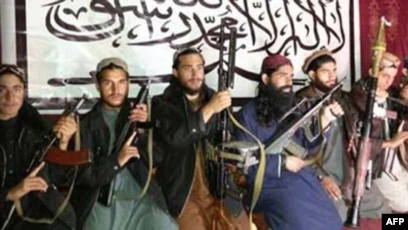
The Pakistani state continues to devour its children over its continued obsession with India. Thousands of Pakistani civilians and security personnel have lost their lives to terrorism over the last few decades but none of that matters to the deep state as it refuses to act against the hydra-headed monster it has created.
A few days ago, seven soldiers were killed in Lakki Marwat when their vehicle was blown up in an IED attack. That same night, policemen successfully defended their post in Bajaur from a militant attack with no loss of lives. As a news story in Dawn reported, data shows there have been 281 fatalities of civilians and security personnel in the first quarter of 2024.
According to experts “several pivotal developments have led to the resurgence of terrorist activities in Pakistan, notably the Afghan Taliban’s takeover of Kabul in 2021. The collapse of the ill-advised ceasefire with the banned TTP has only exacerbated the situation. Meanwhile, Kabul’s reluctance to rein in the group and ensure Afghan soil is not used for launching attacks against Pakistan has made an already messy situation even messier. Despite repeated diplomatic engagements and cross-border actions, the Taliban have shown little inclination to curb the activities of their ideological brethren. And so, an emboldened TTP has been able to regroup and mount sophisticated attacks against targets inside Pakistan. The presence of TTP sanctuaries in Afghanistan, reportedly supported by modern weapons and financial aid from the Taliban, poses a significant threat to Pakistan’s national security.”
To counter this escalating threat, an editorial in Dawn called upon Pakistan to develop a strategy “that integrates both military and civilian efforts. The National Action Plan needs to be revitalised and enforced with renewed vigour. Our security forces need to be adept at handling asymmetric warfare including detecting and defusing IEDs, urban combat, and intelligence gathering. The military must be supported by well-trained, well-equipped police forces to ensure a holistic approach to counterterrorism. Ensuring that no space is available to militants and their sympathisers is just as crucial. This includes rigorous monitoring of educational institutions, madressahs, and other potential recruitment grounds for extremists. The state must also cut off funding sources for terrorist groups. Border security is another area to consider. This involves not only physical barriers but also the deployment of advanced surveillance technologies and increased patrols to prevent cross-border infiltration by militants. All the while, diplomatic efforts must continue to exert pressure on the Afghan Taliban to take concrete actions against the TTP. This should be complemented by engaging with stakeholders such as China, Russia, Iran and the UAE, to form a united front against the threat posed by Afghanistan-based militants.”
In conclusion, the editorial warned, “the battle against terrorism is not solely the responsibility of the military. Civilian institutions, LEAs, and society at large must get to work to counter this menace. The martyrdom of our security personnel must not go in vain.”
![]()





